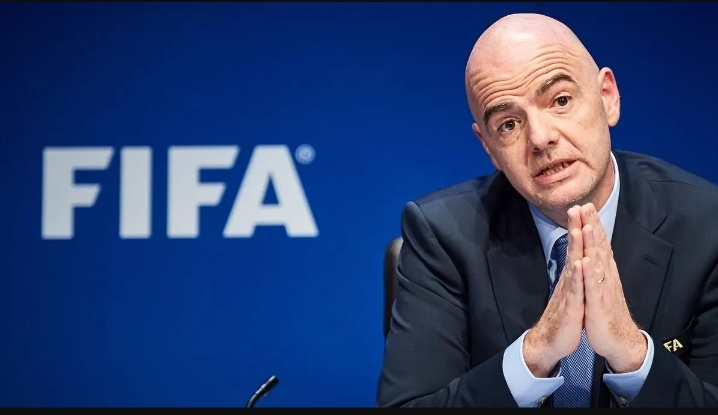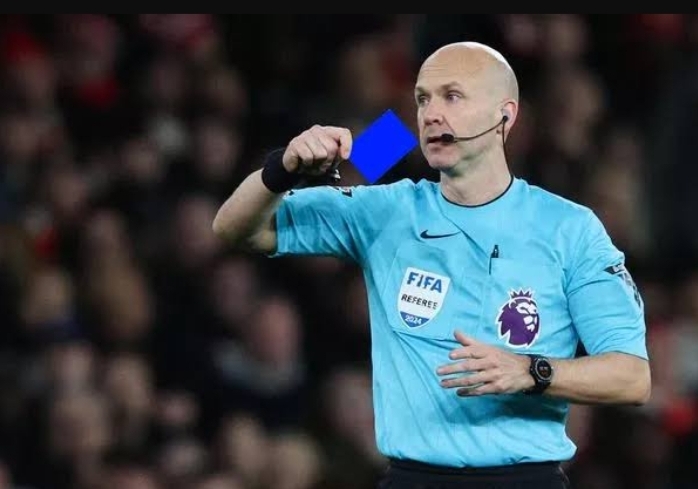
FIFA has issued a statement to address the media reports about the introduction of blue cards in football, which would send players to a 10-minute sin bin for certain offenses.
The world governing body said that the reports were “incorrect and premature” and that any trials of the blue card would be limited to lower levels of the game.
The blue card, which would be used for dissent or cynical fouls, was reportedly approved by the International Football Association Board (IFAB), the body that oversees the laws of the game, and was expected to be announced on Friday.
However, FIFA said that the matter would be discussed at the IFAB annual general meeting on March 2 and that no decision had been made yet.
“FIFA wishes to clarify that reports of the so-called ‘blue card’ at elite levels of football are incorrect and premature,” FIFA said in a social media post on Thursday. “Any such trials, if implemented, should be limited to testing in a responsible manner at lower levels, a position that FIFA intends to reiterate when this agenda item is discussed at the IFAB AGM on 2 March.”
READ ALSO: FIFA to reveal 2026 World Cup final venue
The blue card has already been used in grassroots and youth football, where it has been successful in reducing dissent and improving the behaviour of players and coaches. The FA is considering whether to use next season’s FA Cup and Women’s FA Cup for testing purposes, but that now seems unlikely given FIFA’s statement.
The blue card would be the first new card introduced in football since the yellow and red cards were first used at the 1970 World Cup. It would also be similar to the system used in rugby, where players are sent to the sin bin for 10 minutes for offences such as professional fouls or foul play.
Some football fans and pundits have expressed their opposition to the blue card, arguing that it would disrupt the flow of the game and add more confusion to the referees’ decisions. Others have welcomed the idea, saying that it would deter players from cheating and disrespecting the officials.
The IFAB, which consists of representatives from FIFA and the four British associations, is responsible for making changes to the laws of the game. It meets once a year to discuss and vote on proposals, which require a 75% majority to be approved. Some of the recent changes made by the IFAB include the introduction of VAR, the handball rule, and the concussion substitutes.








Leave a Reply